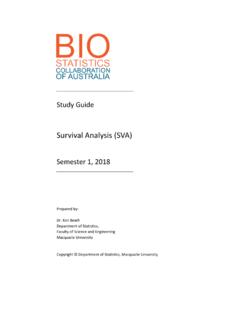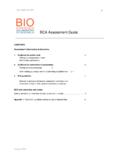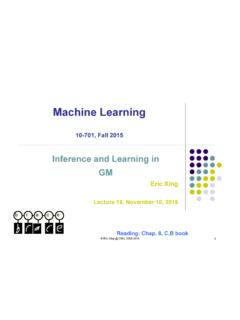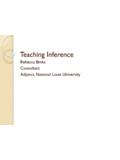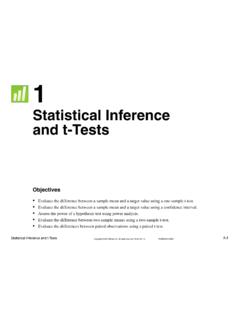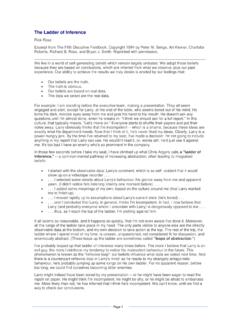Transcription of Principles of Statistical Inference (PSI)
1 Study Guide Principles of Statistical Inference (PSI). Semester 2, 2017. Prepared by: Associate Professor Patrick Kelly Sydney School of Public Health The University of Sydney Copyright The University of Sydney Principles of Statistical Inference Contents Instructor contact details .. 2. Background .. 3. Unit summary .. 3. Prerequisite .. 3. Assumed knowledge .. 3. Learning outcomes .. 4. Unit content .. 4. Outline of unit modules .. 5. Unit schedule .. 6. Assessments .. 7. Submission of assessments and academic honesty policy .. 8. Late submission of assessments and extension procedure .. 8. Textbook and other reference books .. 9. Method of delivery and communication .. 10. Software.
2 10. 1. Principles of Statistical Inference Instructor contact details For all enquiries about this unit, contact the unit coordinator: Associate Professor Patrick Kelly Sydney School of Public Health Edward Ford Building (A27), University of Sydney, NSW 2006. email: phone: 02 9036 5337. web: In case of extended absence of the unit coordinator, the deputy coordinator is: Professor Judy Simpson Sydney School of Public Health Edward Ford Building (A27), University of Sydney, NSW 2006. email: phone: 02 9351 4369. web: For enquiries about the BCA and about the various degrees towards which this unit contributes, contact the BCA Executive Officer: Erica Jobling NHMRC Clinical Trials Centre, University of Sydney, NSW 2006.
3 Email: phone: 02 9562 5076. fax: 02 9565 1863. web: For enquiries about your degree program, contact the university through which you are enrolled. 2. Principles of Statistical Inference Background A sound understanding of the basic Principles of Statistical Inference , including the theory of Statistical estimation and hypothesis testing, is necessary for students to gain a deeper understanding of methods used in the design and analysis of biomedical and epidemiological studies. An understanding of the theoretical basis for common biostatistical techniques is essential for practising biostatisticians to be able to assess the validity of these techniques for particular studies, and to be able to modify those techniques where appropriate.
4 This unit of study (unit) provides the core prerequisite knowledge in Statistical Inference , which will subsequently be built upon in other subjects. Unit summary This unit will introduce and review core concepts of Statistical Inference , including estimators, confidence intervals, type I & II errors and p-values. The emphasis will be on the practical interpretation of these concepts in biostatistical contexts, including an emphasis on the difference between Statistical and practical/clinical significance. Concepts in classical estimation theory, including bias and efficiency will be discussed. The unit will provide a general study of the likelihood function, which will be used as a basis for the study of likelihood based methodology, including maximum likelihood estimation and Inference based on likelihood ratio, Wald and score test procedures.
5 The Bayesian approach to Statistical Inference will be briefly studied and contrasted with the classical frequentist approach. Prerequisite Probability and Distribution Theory (PDT). Assumed knowledge PSI builds upon the material covered in Probability and Distribution Theory (PDT). You may find it useful to refer back to your PDT notes. The first two chapters and the appendix of the PSI textbook contain information that will be helpful for PSI it is recommended that you read those chapters early in the semester and refer to the appendix as required. 3. Principles of Statistical Inference Learning outcomes At the completion of this unit students should be able to: 1. Write a likelihood function 2.
6 Derive and calculate the maximum likelihood estimate 3. Derive and calculate the expected information 4. Calculate and interpret p-values, power and CIs correctly 5. Derive a Wald test, Score test and likelihood ratio test 6. Use a Bayesian approach to derive a poster distribution 7. Calculate and interpret posterior probabilities and credible intervals 8. Apply and explain an exact method, non-parametric and sampling based method. Unit content The unit is divided into 6 modules, summarized in more detail below. Each module will involve approximately 2 weeks of study and will usually include the following materials: 1. A chapter from the textbook, which includes Statistical theory and also an extended example illustrating the Statistical theory covered.
7 2. A lecture on the theory and a lecture on the extended example 3. Practical exercises to be completed 4. A discussion board to ask lots of questions and post up solutions to non-assessed exercises. Students should begin each module by reading through the relevant chapter of the text and work through the extended example in parallel with the exercises. Lectures will be provided describing the material in each module and the extended examples where applicable. This year there have been substantial changes to PSI from previous deliveries of the unit. These include replacing module notes with a textbook, the introduction of new unit material and the re- ordering/numbering of the previous existing modules.
8 We have recorded new lectures, but we are also re-using some previously recorded lectures, so please be aware that for these lectures that references to the module number and/or page numbers will not be directly applicable. Each module contains a number of exercises, one of which is required to be submitted for assessment. 4. Principles of Statistical Inference Outline of unit modules Each module of this unit corresponds to a chapter in the Marschner textbook (see below for details). Module 1: Likelihood - Likelihood function - Sufficiency - Nuisance parameters - Approximate likelihood Module 2: Estimation methods - Maximum likelihood estimation - Fisher information - Properties of maximum likelihood estimation Module 3: Hypothesis testing concepts - Null and alternative hypotheses - Test statistics - P-values - Type I & II errors, significance level and power - Statistical significance and practical significance - Module 4: Likelihood based methods - Likelihood ratio tests - Score tests - Wald tests - Relationship between the three tests - Interval estimation based on the three tests Module 5: Bayesian methods - Basic concepts.
9 Subjective probability - Bayes' rule, prior and posterior distributions - Conjugate and non-informative prior distributions - Analysis of simple binomial & normal models Module 6: Further Inference methods - Exact methods - Non-parametric methods - Bootstrapping and other resampling methods 5. Principles of Statistical Inference Unit schedule The following timetable describes the timing of the study modules and assessment tasks for Principles of Statistical Inference . It is the intention that students will work through the material for each module, including completion of practice exercises by the due date of the module assessment task. All assessment tasks are due by 11:59pm on the Tuesday stated date.
10 Week Topic Tuesday date Assessment 1 Module 1 1 August 2 8 August 3 Module 2 15 August Module 1 exercise due 4 22 August 5 Module 3 29 August Module 2 exercise due 6 5 September Module 3 exercise due 7 Module 4 12 September Assignment 1 handed out 8 19 September Mid-semester Break 26 September Assignment 1 due 9 Module 5 3 October Module 4 exercise due 10 10 October 11 Module 6 17 October Module 5 exercise due 12 24 October Module 6 exercise due 13 31 October Assignment 2 handed out 14 7 November 15 14 November Assignment 2 due 6. Principles of Statistical Inference Assessments There are two assignments worth 40% each. In addition, one designated exercise from each module will be required to be submitted as part of the unit assessment.
